Despite the upheavals of history, Dak Rang Village in Duc Nong Commune, Quang Ngai Province continues to preserve the distinctive cultural heritage of the Gie Trieng people, thanks to the dedication of multi-talented artisans deeply devoted to their ethnic traditions.
Dak Rang is a peaceful village nestled along the Ho Chi Minh Road in Quang Ngai Province. It comprises 110 households with 348 residents, all of whom are Gie Trieng people who have lived here for generations.
The village still retains its unique traditional architecture and a rich array of cultural practices, including gong and xoang performances, folk singing, brewing traditional wine, brocade weaving, musical instrument crafting, and bamboo and rattan weaving for household and farming tools.
In 2024, Dak Rang was officially recognized as a community tourism village. This milestone has not only helped boost tourism and improve local incomes but also raised awareness among younger generations about the importance of preserving and continuing the cultural legacy of the Gie Trieng people.
In Dak Rang, Bro Ve (right) and A Qua (left) are considered cultural elders. These two are among the last who know how to teach ancient gong melodies and craft traditional instruments such as drums, bamboo flutes, and dinh tut (a traditional Gie Trieng wind instrument).
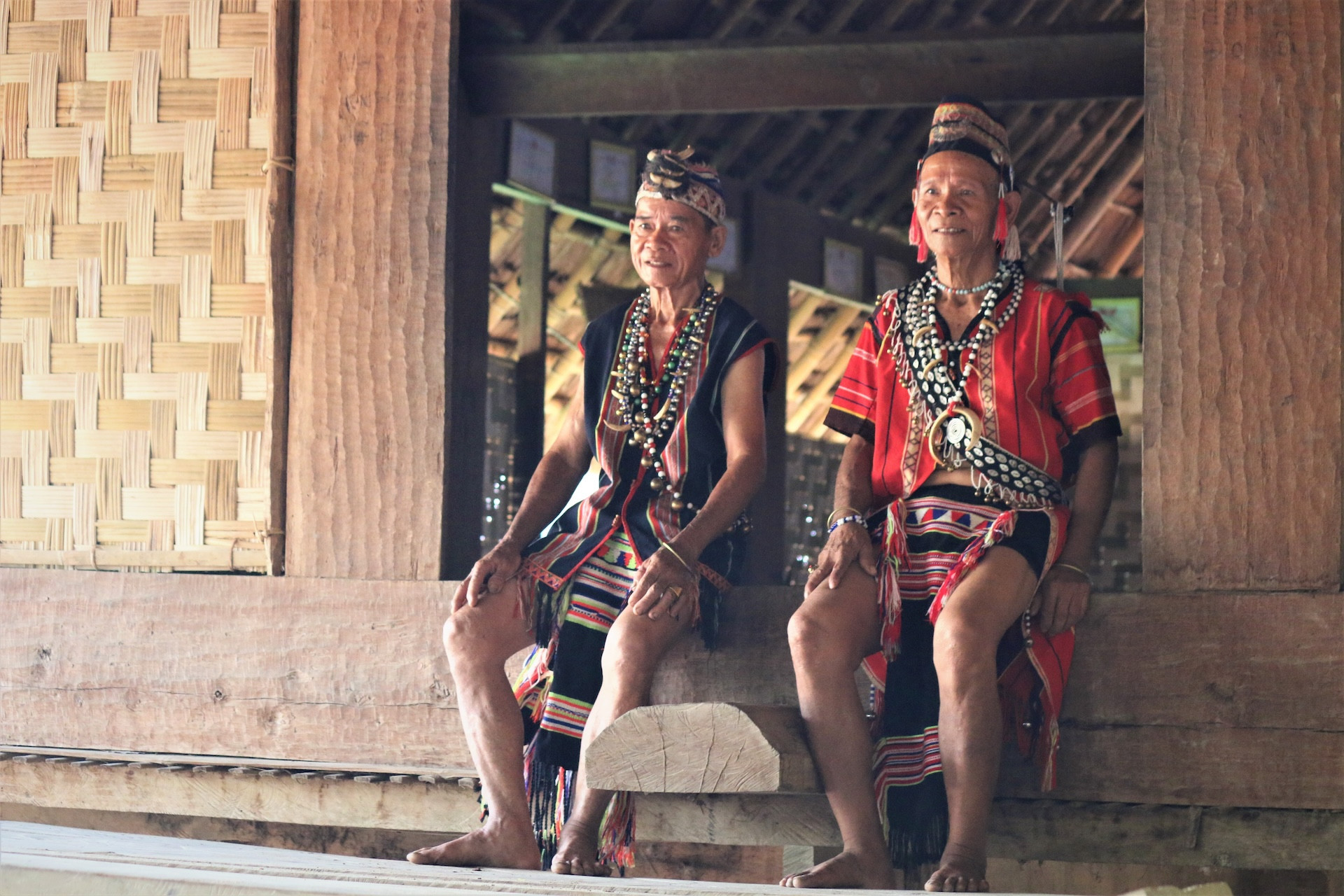
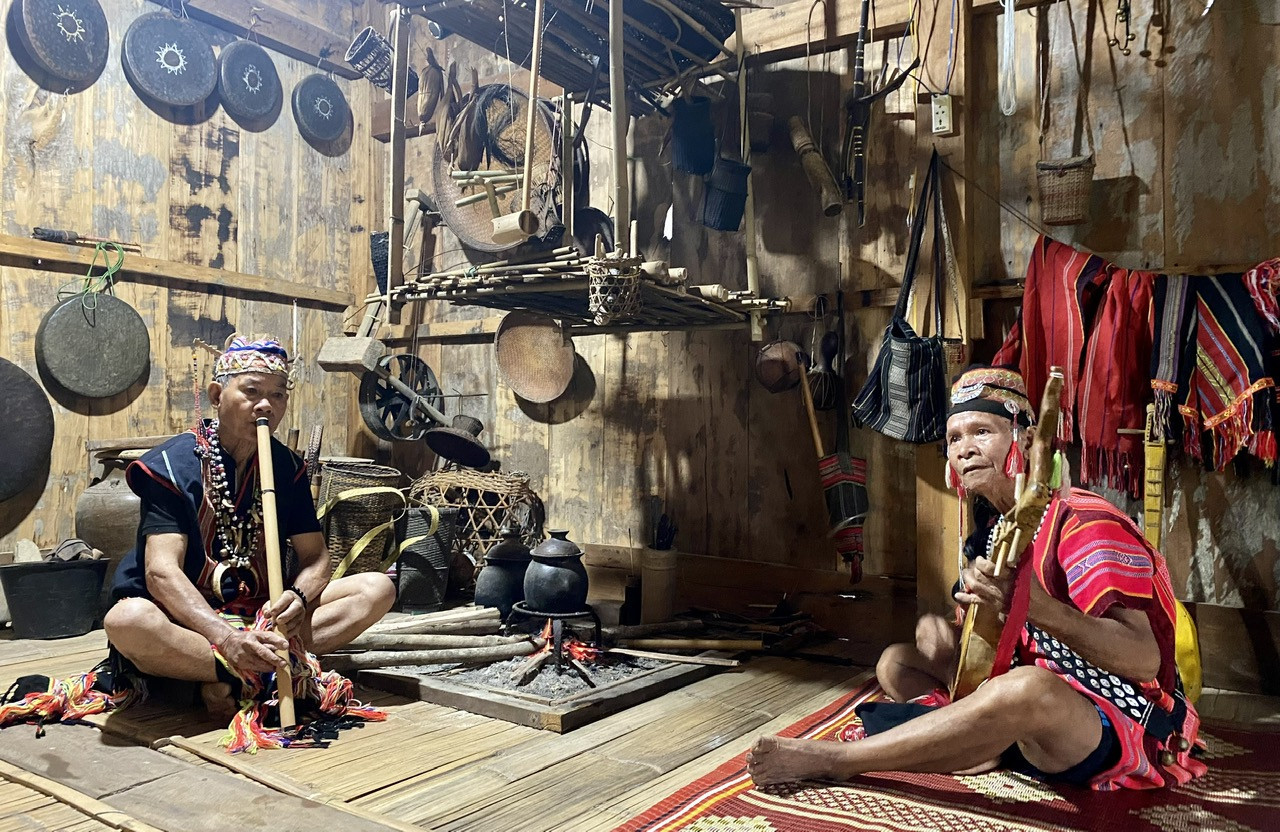
Bro Ve and A Qua perform traditional Gie Trieng musical instruments.
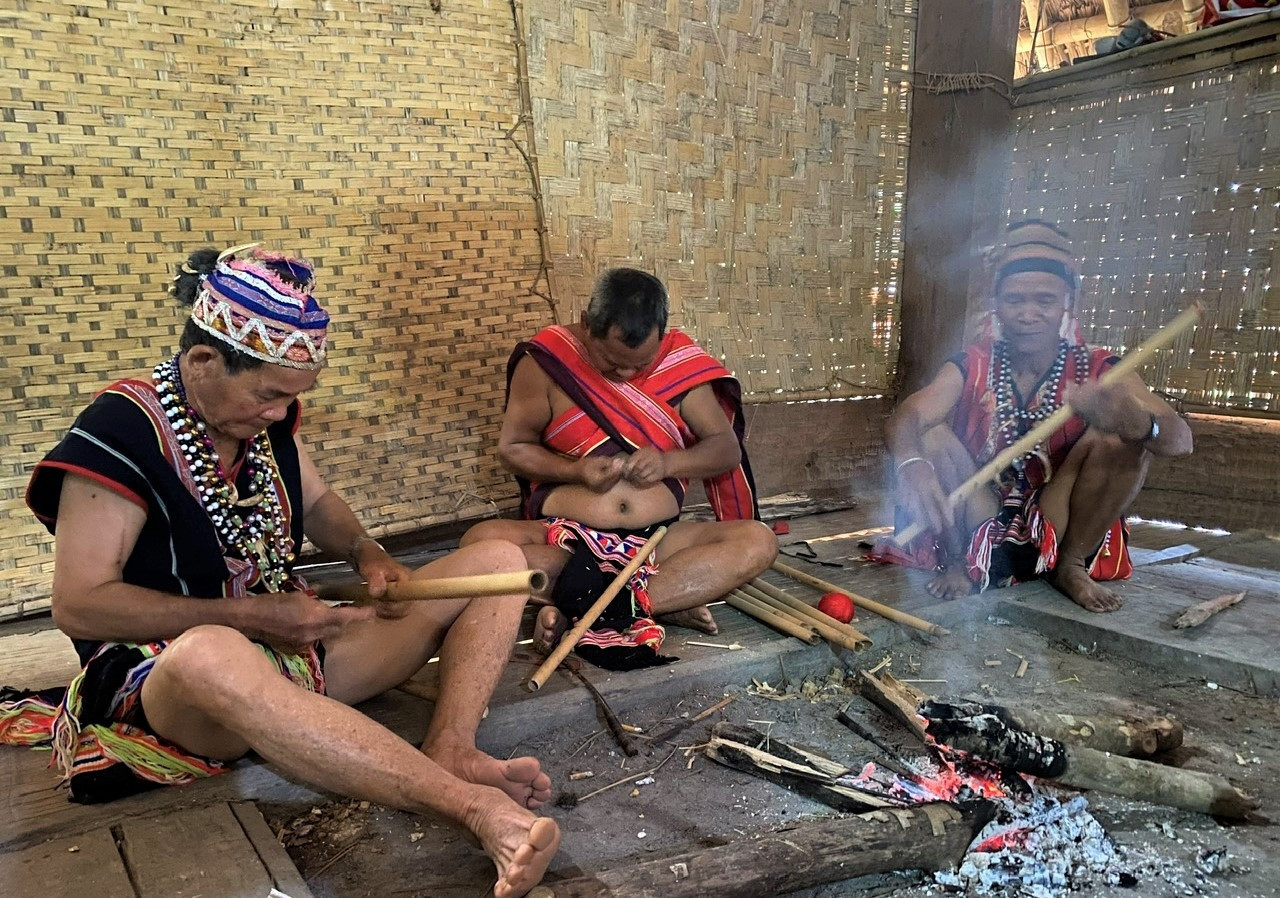
They also teach villagers how to craft these traditional instruments.
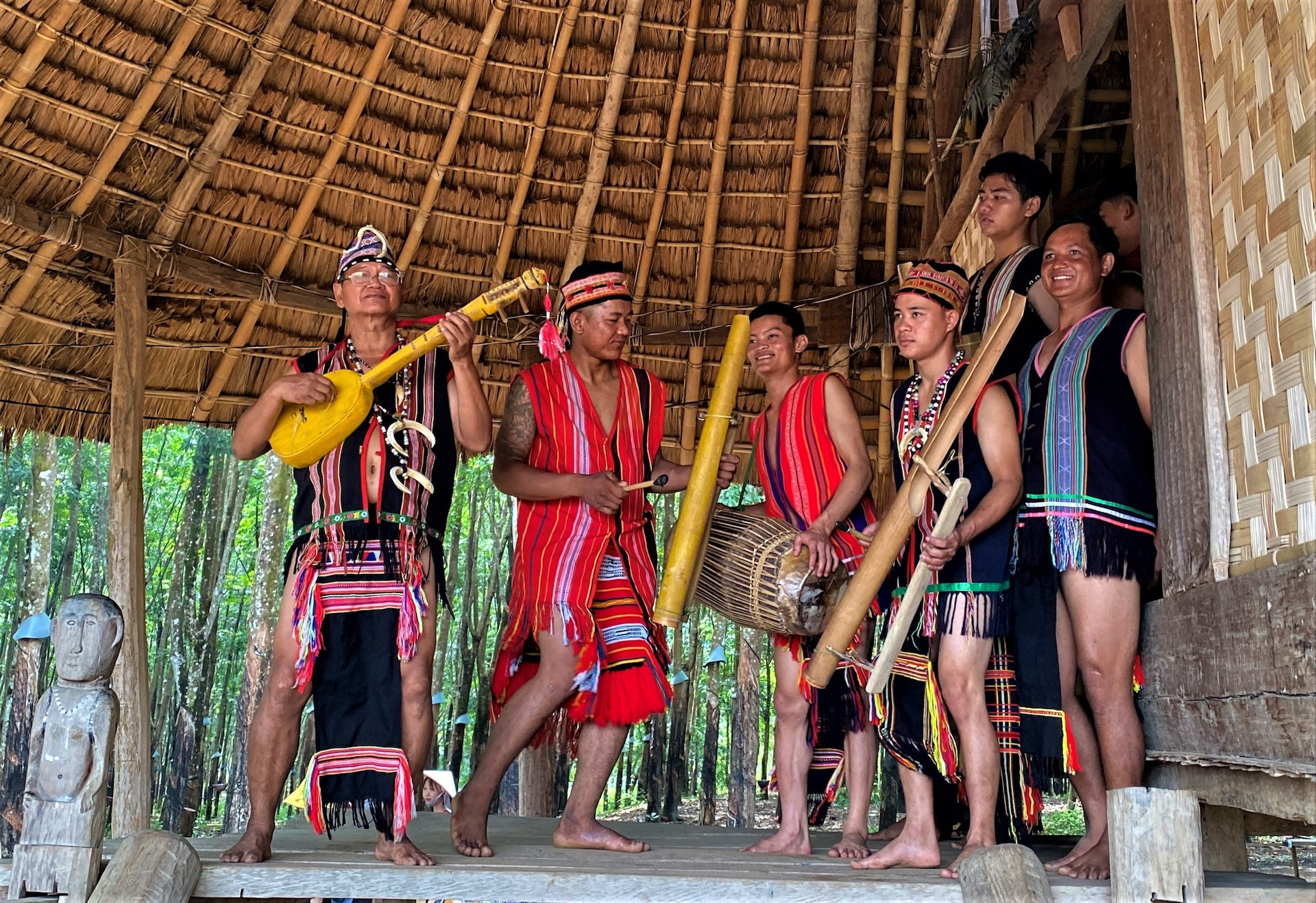
Dak Rang artisans perform traditional Gie Trieng music.
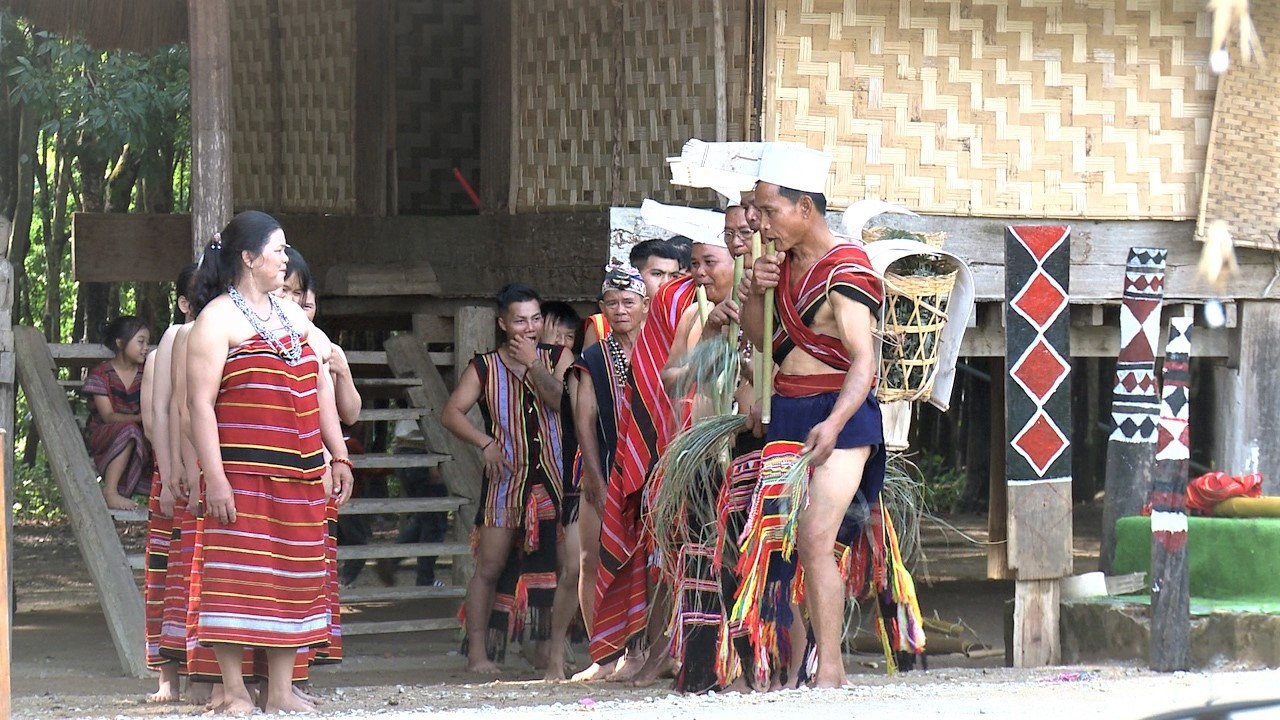
The Gie Trieng people of Dak Rang celebrate the traditional "Eat Ash" Ceremony.

Traditional gong and xoang performances by the Gie Trieng in Dak Rang.
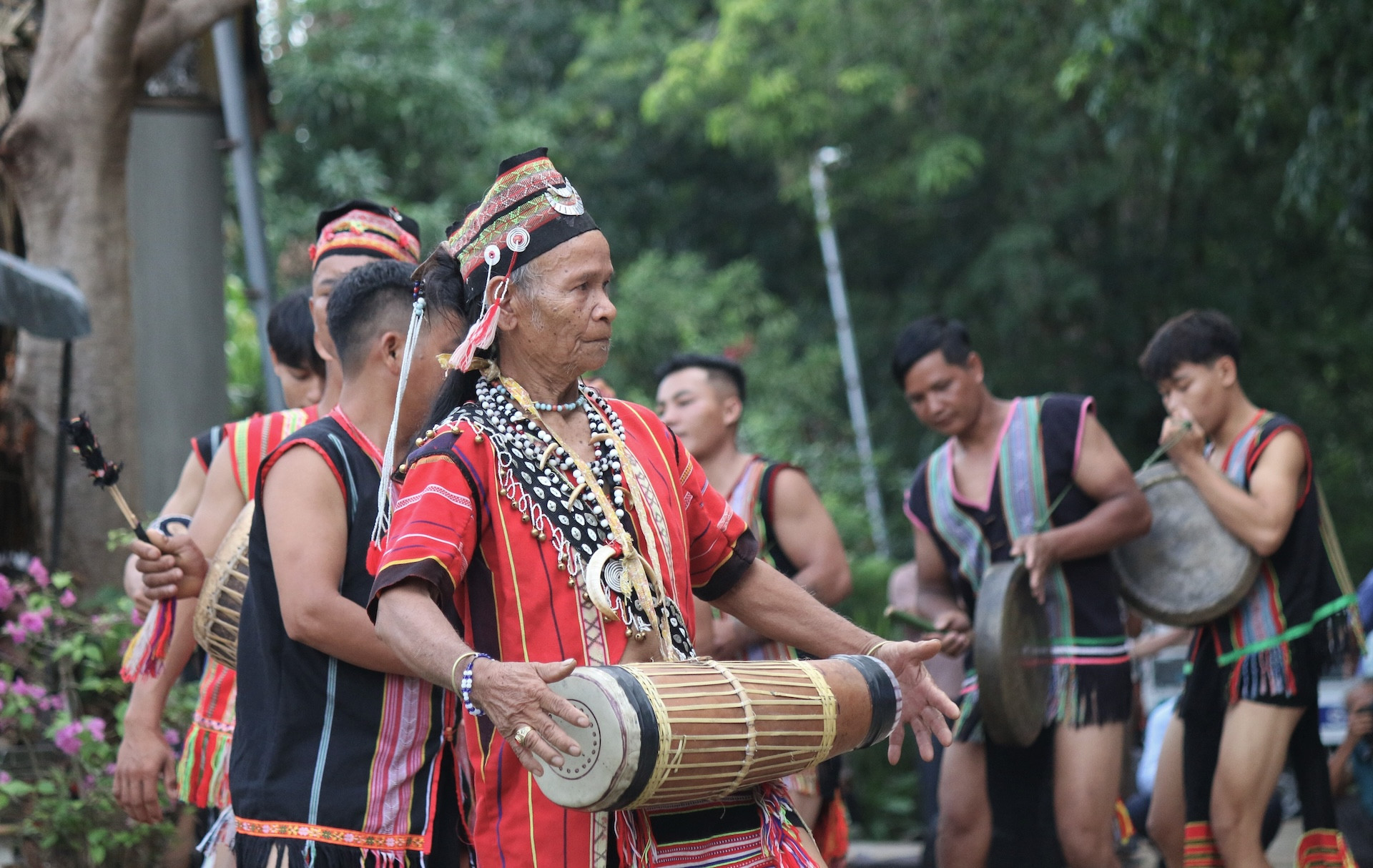
Bro Ve leads the village’s traditional festivals.
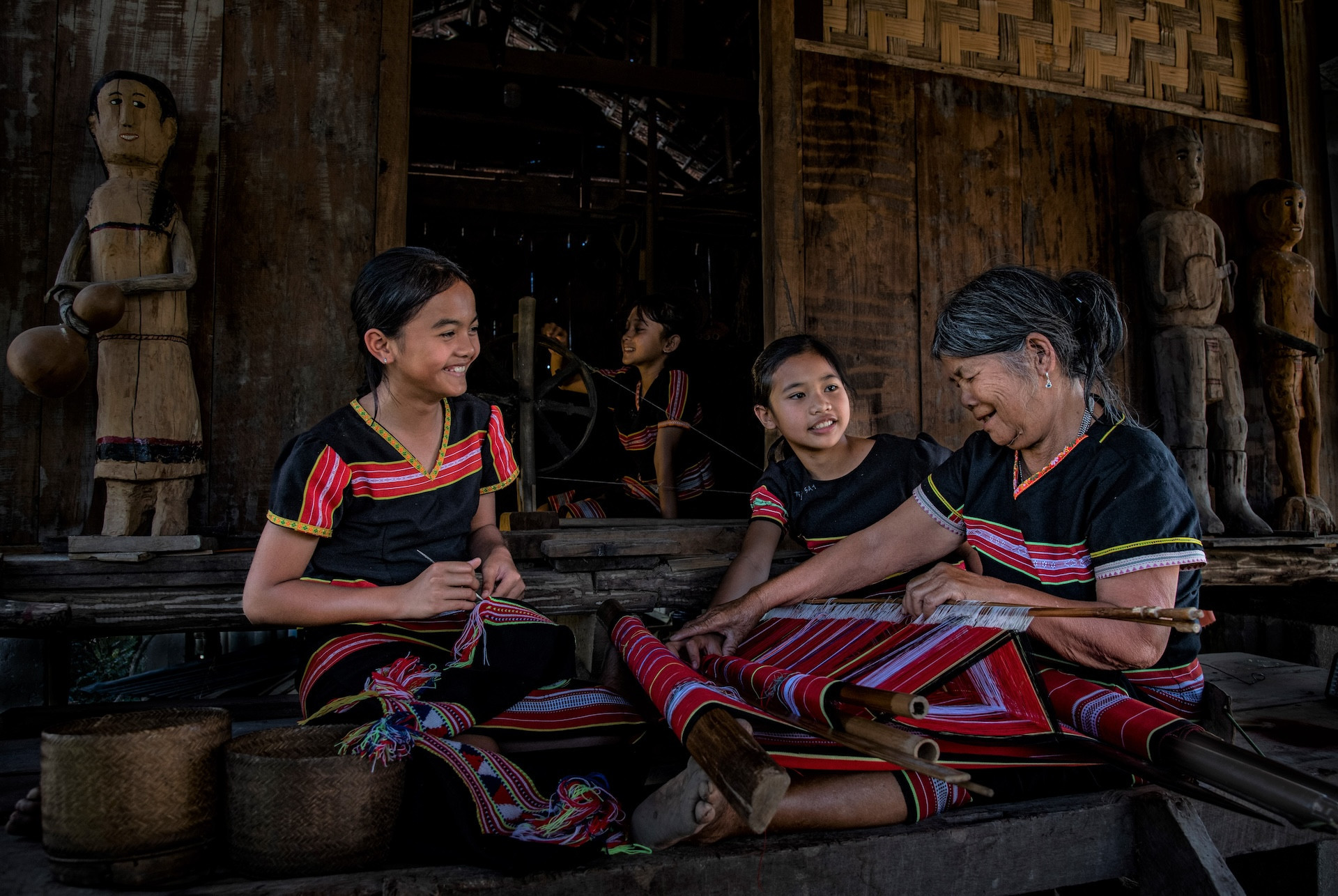
The brocade weaving tradition has been passed down through generations in Dak Rang.
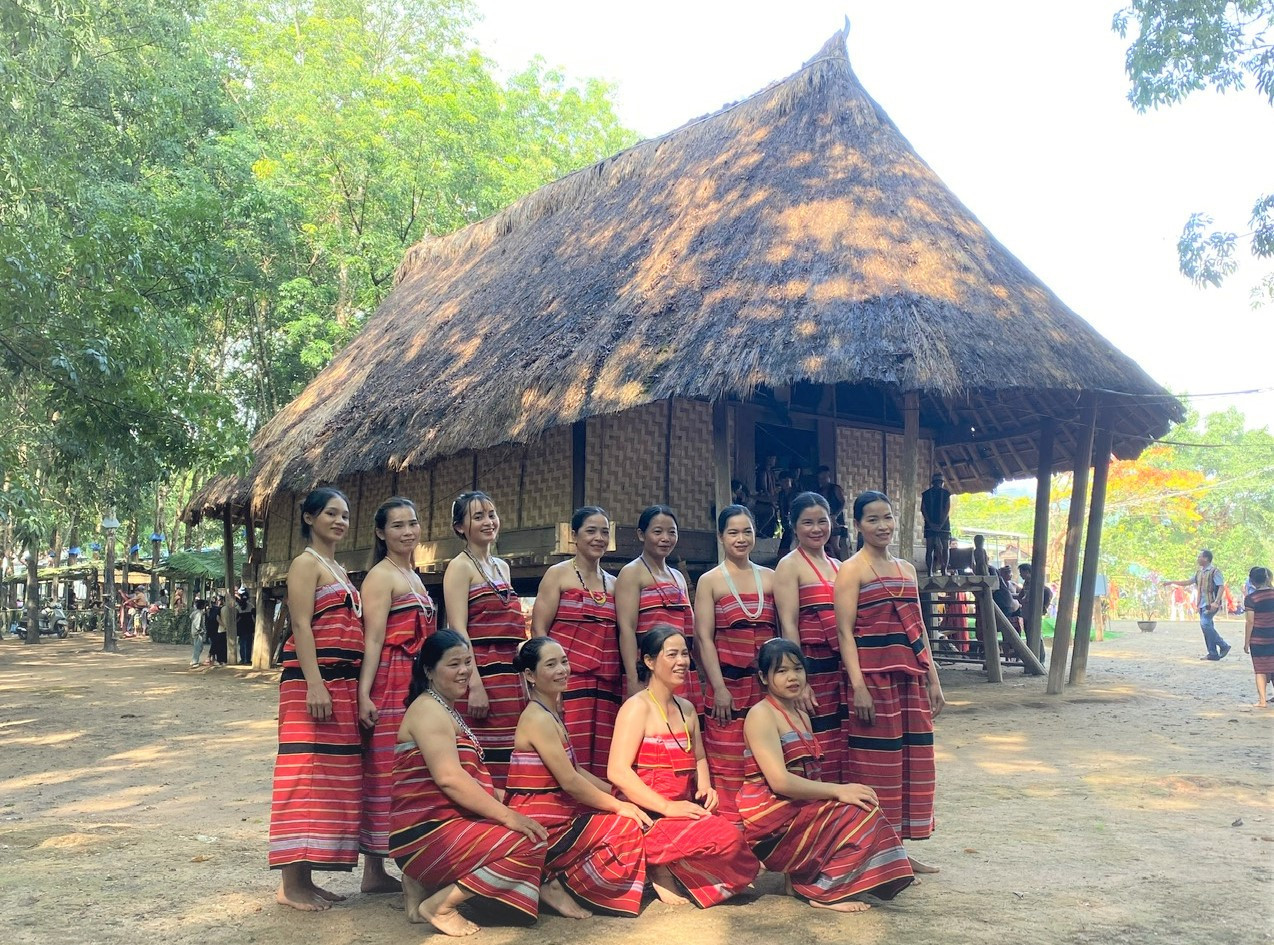
Gie Trieng women proudly wear traditional clothing they make themselves.
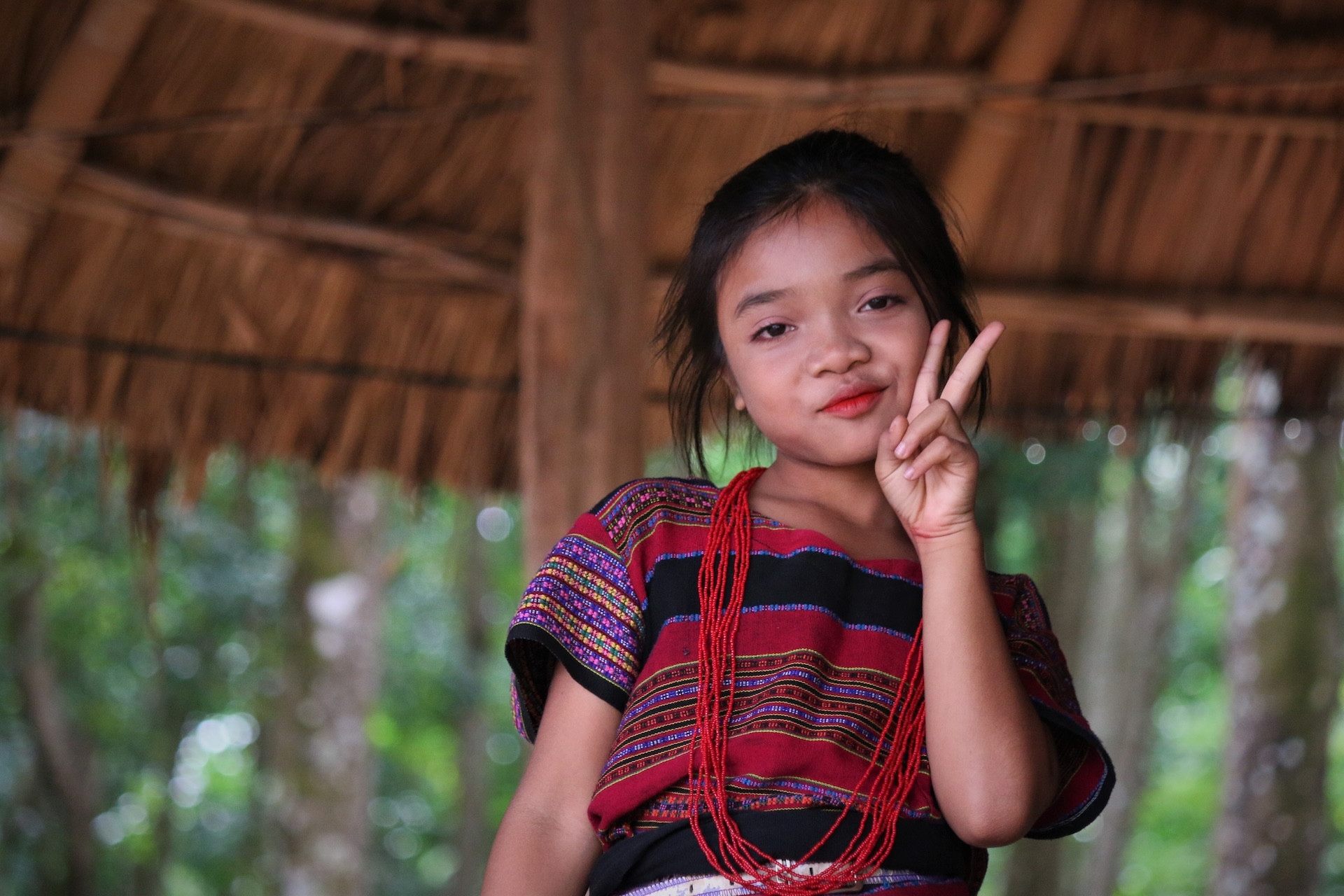
Children in Dak Rang are proud to wear the traditional Gie Trieng garments.
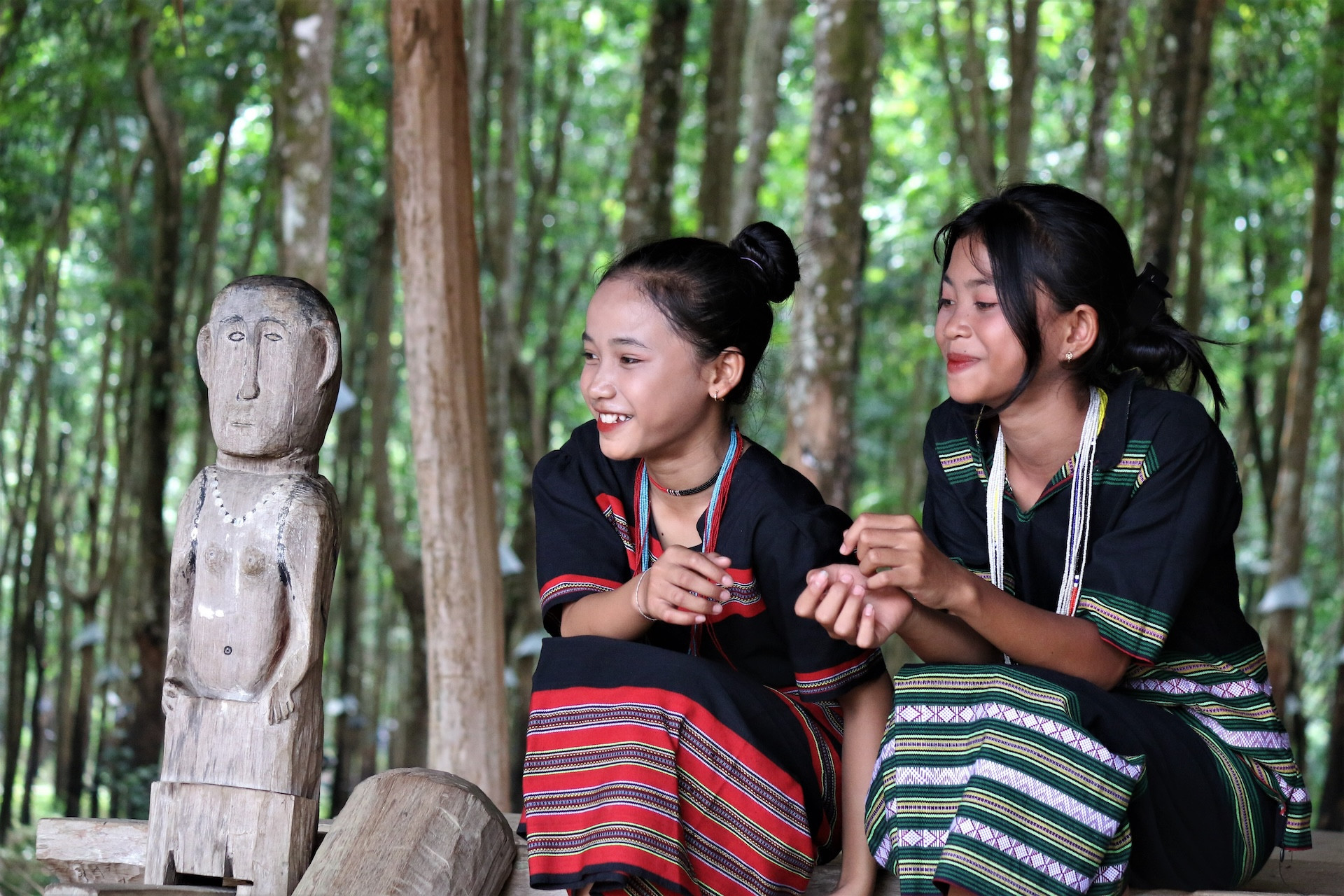
The traditional attire of the Gie Trieng features vibrant colors and intricate patterns.
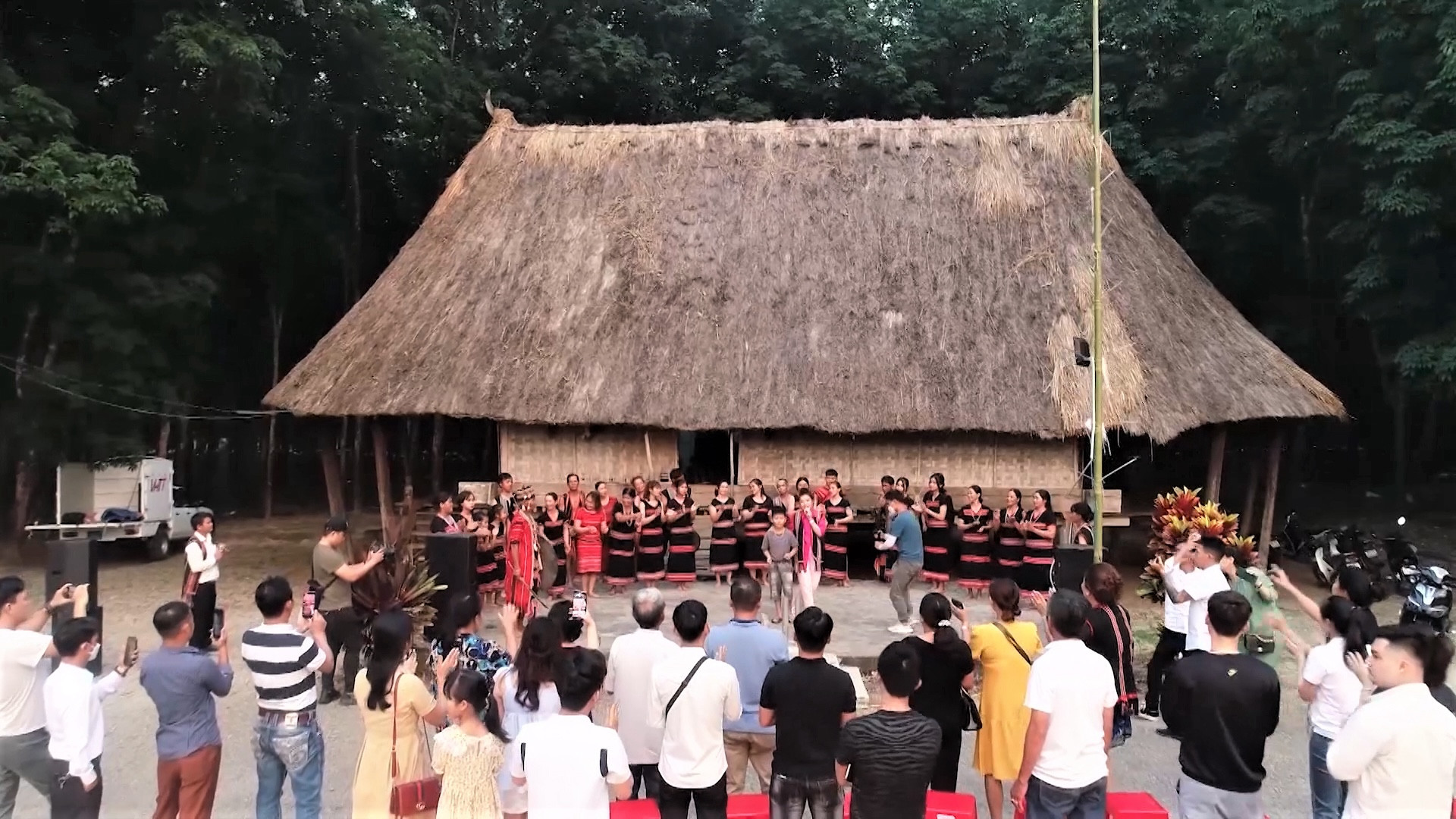
Ngoc Chi